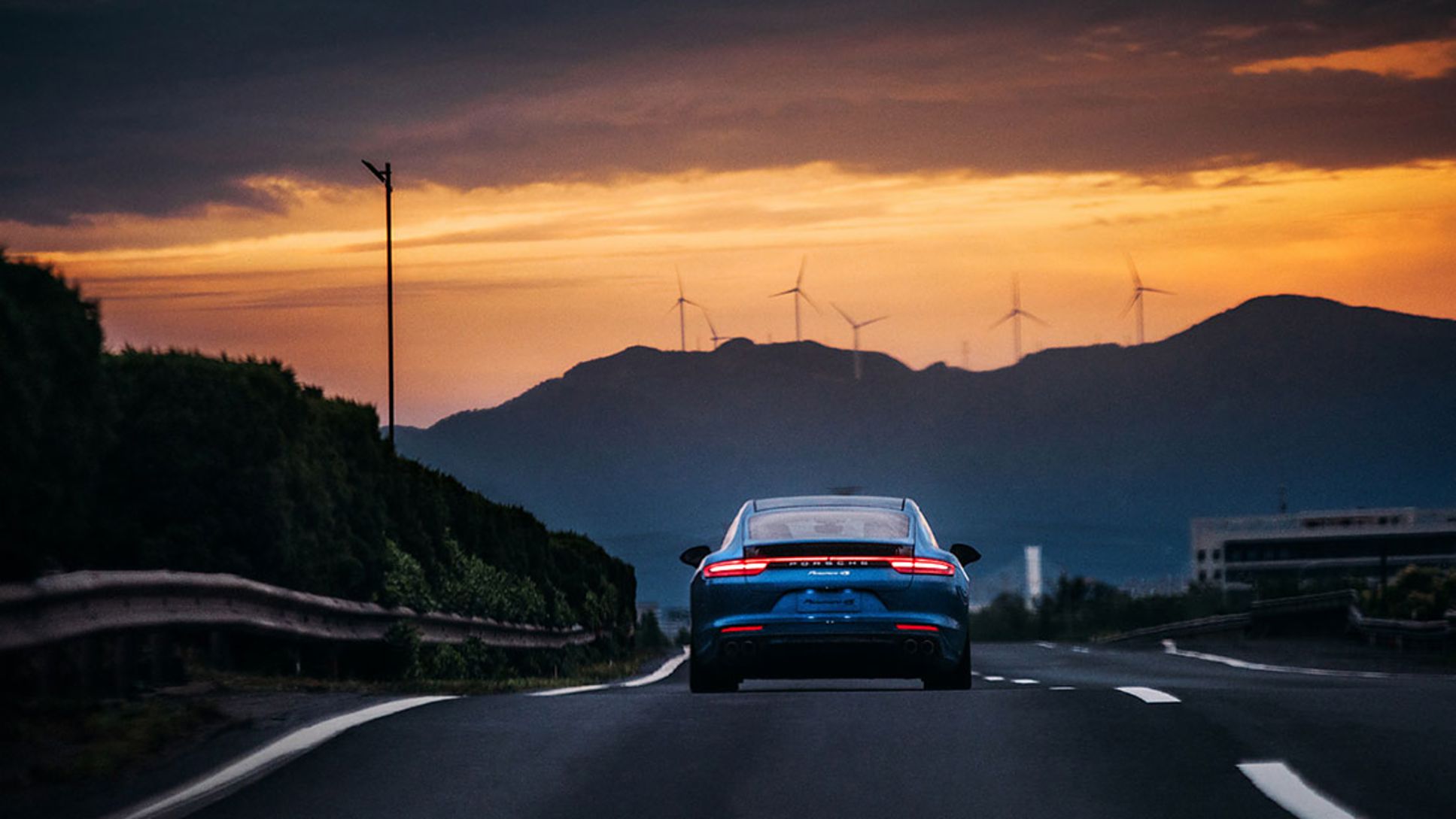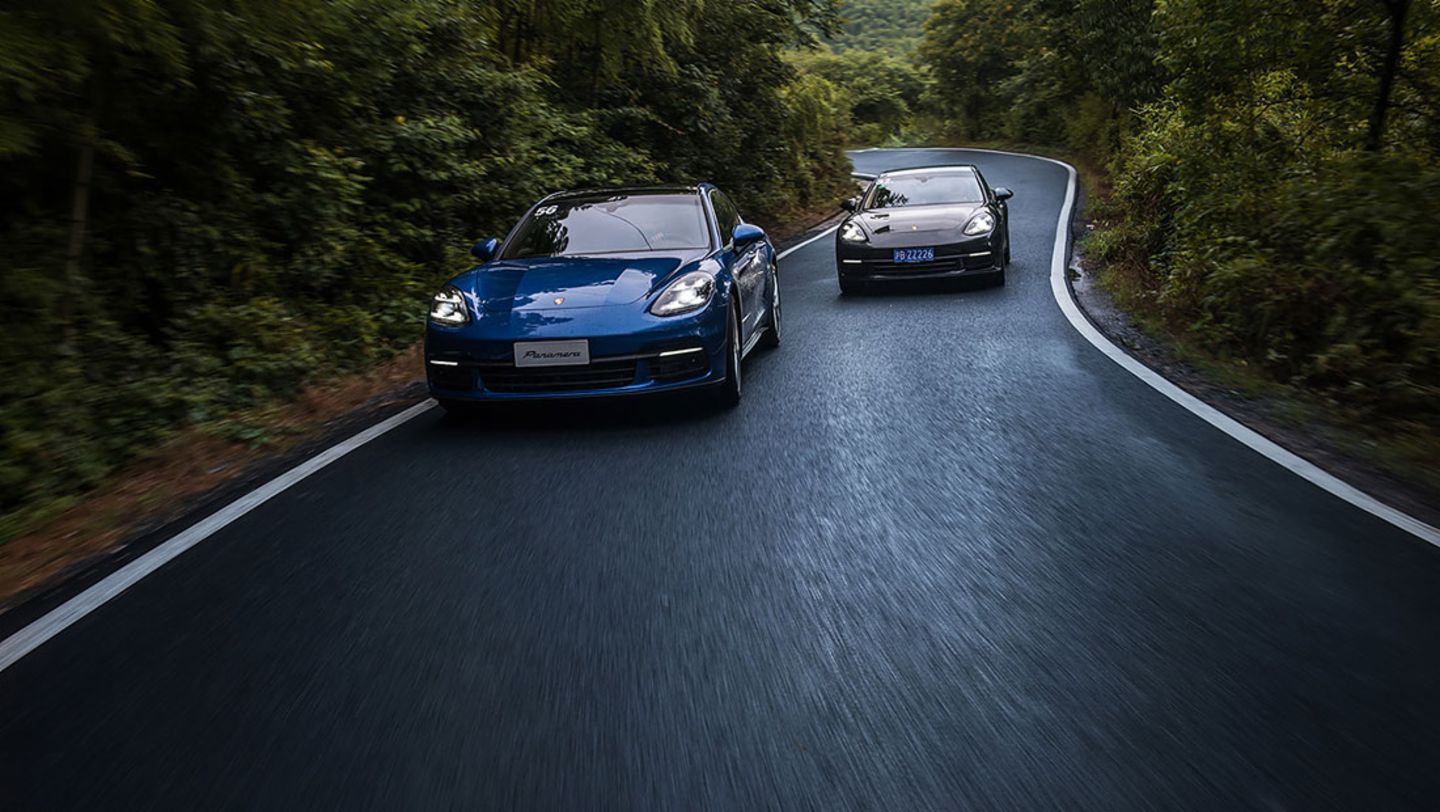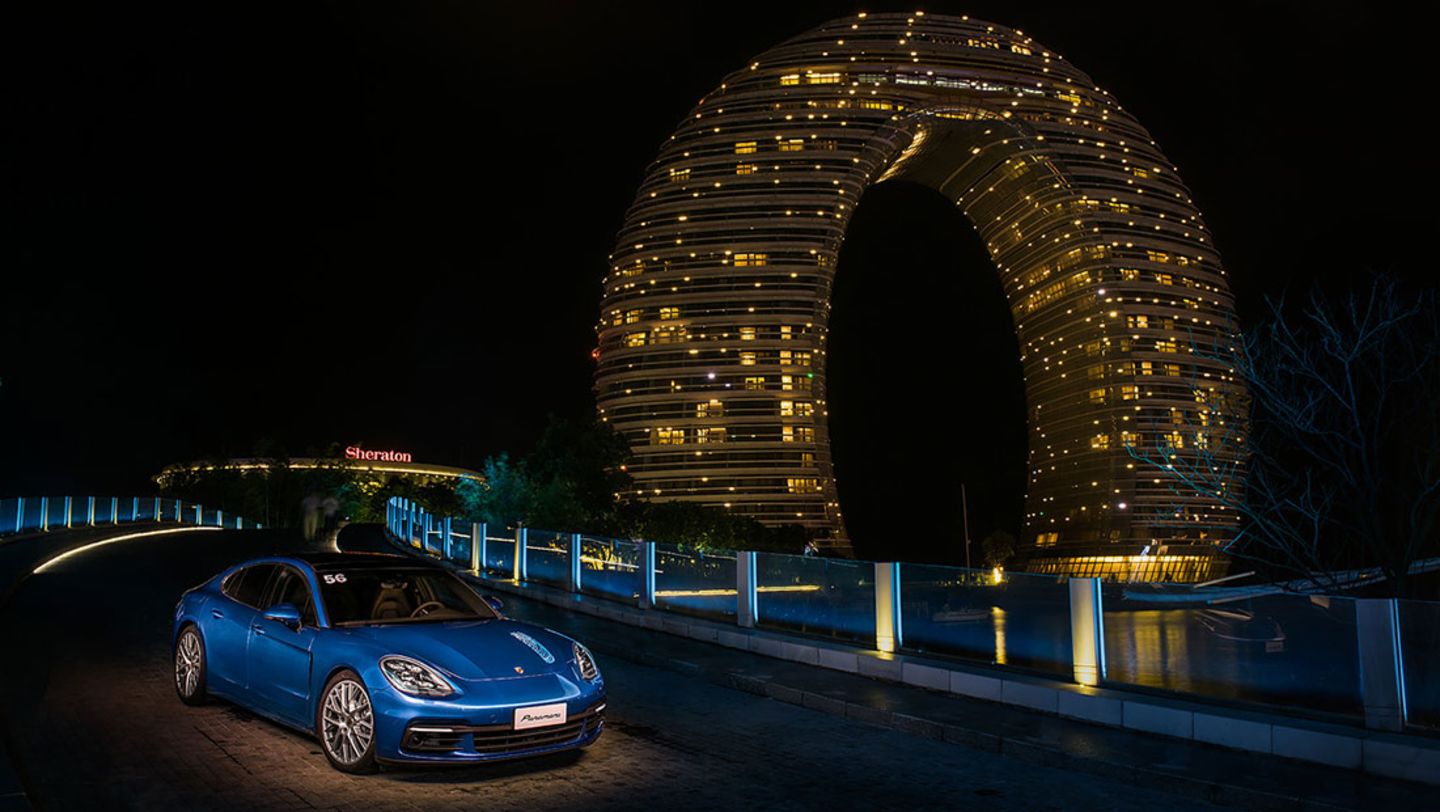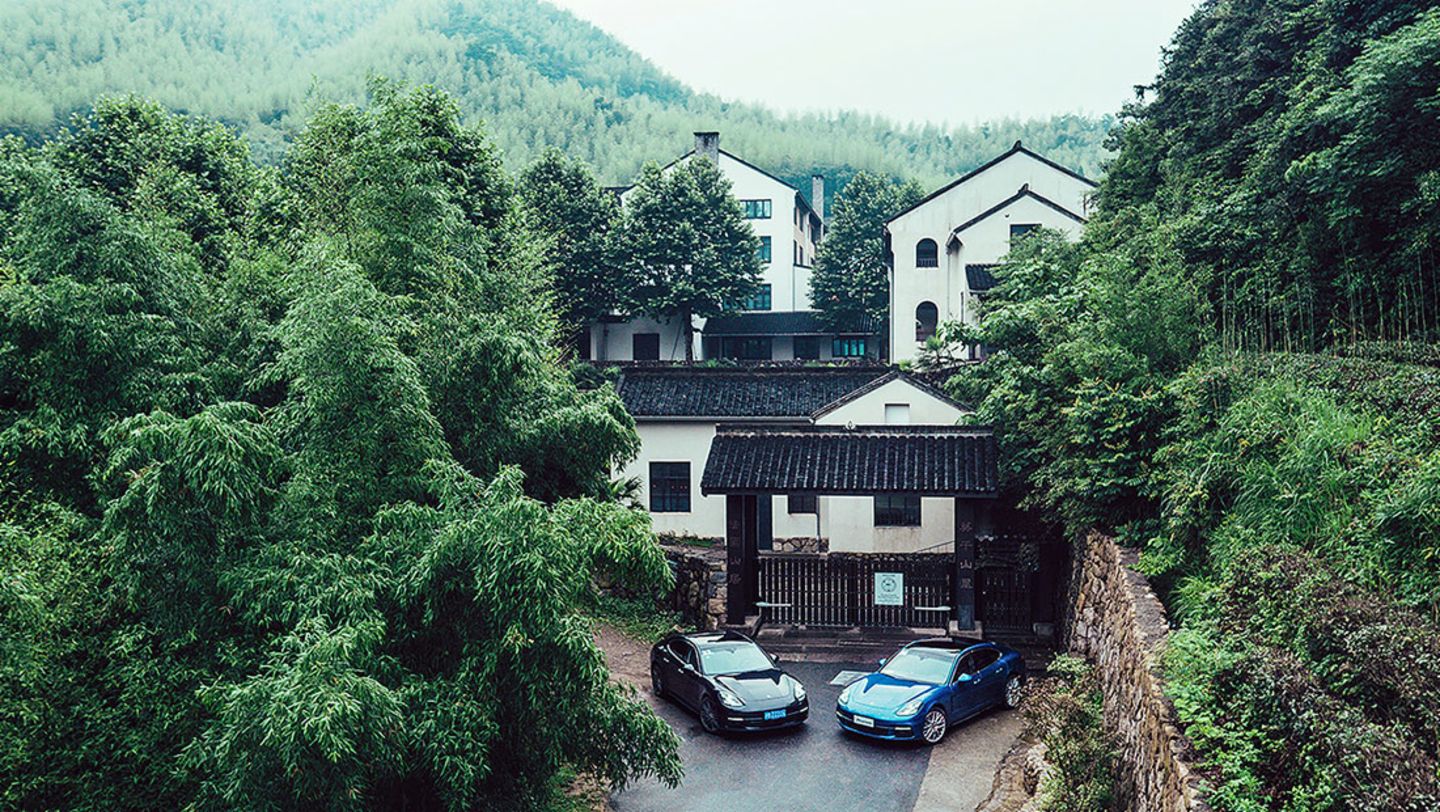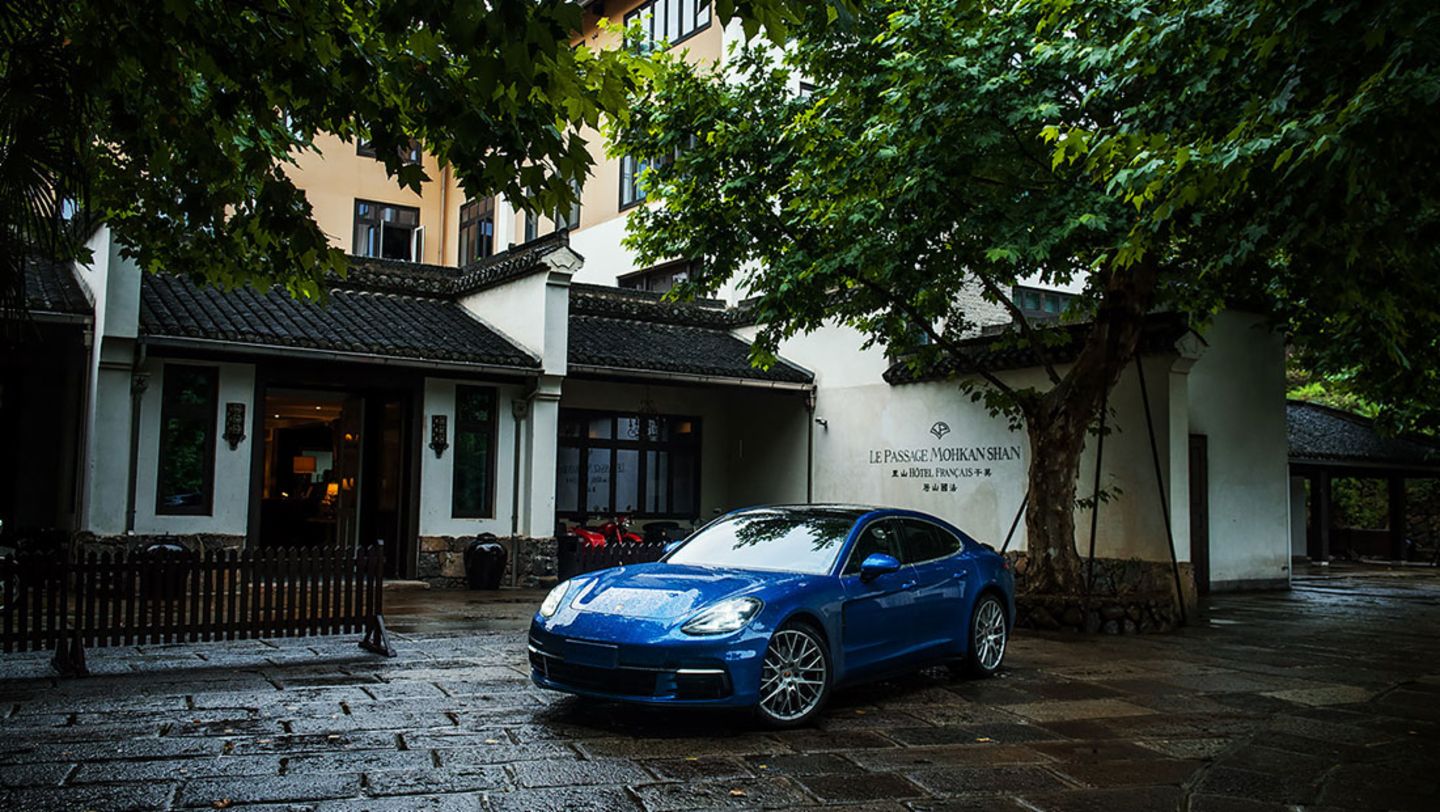How will the new Panamera perform within the Chinese market? Dr. Stefan Utsch, Director Sales & Marketing, Product Line Panamera, is confident. “Over the past year, this luxury sedan with pure sports gene has been popular among Porsche fans across the world. China, as Porsche's largest single market, will be a significant foothold for the Panamera.” Utsch said, “Currently we’ve brought 13 unique variants to the Chinese customers to meet their needs for diversified uses in different scenarios. The rising order volume has surpassed our expectations, and we are very confident in the Panamera's market performance in China.”
With its innovative design, future-oriented infotainment system, re-adjusted chassis and a series of advanced assistance systems, the new Panamera has set a new benchmark in the premium comfort of luxury sedans. Journalists recently had the opportunity to experience the car in a scenic drive between Mogan Mountain and the Taihu Lake.
Exclusively for the Chinese market, from October 2017 there will be a new long version of the sports saloon Panamera. It is characterised by the extended and individualised standard equipment of the Executive range. The increased 150mm wheelbase makes the model even longer, while significantly optimising the rear space. Equipped with a panoramic sunroof, comfortable electric rear seat with a comfortable headrest and optional Porsche Rear Seat Entertainment system, the new Panamera Executive variants are able to transform either into a mobile luxury business office, or a home theatre, that makes the whole journey a memorable one.
About Porsche China
Since entering the Chinese market in 2001, Porsche China has been dedicated to bringing the sporty genes and innovative spirit of the marque to Porsche enthusiasts in this dynamic market. In Porsche’s network in China, customers can experience the unlimited appeal of Porsche’s iconic sports cars: the legendary 911 series, the renowned the renowned 718 Boxster and 718 Cayman mid-engine sports cars, the luxurious Cayenne premium SUV, the dynamic and pioneering Macan SUV and the luxurious four-door Panamera with pure sports gene. Across Mainland China, Hong Kong and Macau, there are now 99 Porsche centres in operation, ensuring that Porsche customers across the country receive the hall-mark personalised care that sets Porsche apart around the world.
In 2016, China is once again the strongest individual market, with a total of 65,246 vehicles delivered. In the promising year of 2017, Porsche China expects to continue the marque’s achievements with more future-oriented offerings.
Consumption data
Panamera 4S: Fuel consumption combined 8.2 – 8.1 l/100 km; CO2 emissions 186 – 184 g/km
Panamera Executive models: Fuel consumption combined 9.5 – 7.8 l/100 km; CO2 emissions 217 – 178 g/km
Panamera 4 E-Hybrid Executive: Fuel consumption combined 2.5 l/100 km; CO2 emissions 56 g/km; electricity consumption (combined) 15.9 kWh/100 km
Panamera Turbo S E-Hybrid Executive: Fuel consumption combined 2.9 l/100 km; CO2 emissions 66 g/km; electricity consumption (combined) 16.2 kWh/100 km
718 Boxster: Fuel consumption combined 7.4 – 6.9 l/100 km; CO2 emissions 168 – 158 g/km
718 Cayman: Fuel consumption combined 7.4 – 6.9 l/100 km; CO2 emissions 168 – 158 g/km
